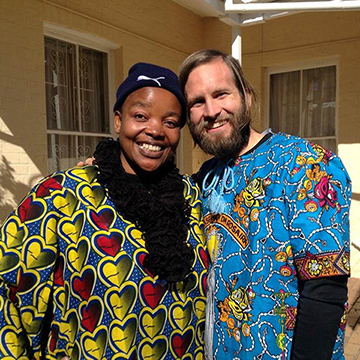International Development Studies

The course of studies for the specialization in International Development Studies is open to all IPED students accepted into the program, but has two tracks depending upon your prior training in economics. This specialization is designed to prepare individuals for work with relief and development organizations as project managers in both the non-profit and government sector. The specialization has three important components.
- Development Overview
All students should take IPED’s two core courses in development: Economic Development Policy and Political Economy of Development. These two courses should give you an advanced interdisciplinary overview of some of the most important issues we face in development. - Managerial Skills
Those who lack practical project management skills are strongly advised to take our trio of project management courses: Project Accounting, Project Design, and Project Proposal Development in the fall as well as Project Assessment which is conducted in the Philippines during our winter inter-session. - Programming Areas
And finally we offer a number of electives designed to give you added depth in the various areas where most relief and development organizations focus their programming, namely rural development, health (HIV/AIDS), small business development (micro-finance), emergencies, peace building (conflict resolution), and the environment. It is recommended that students cover several of these areas with their choice of electives. The following three (3) electives are highly recommended: Agriculture and Development, Community Economic Development & Conflict Resolution. Other important electives in development that we regularly offer are Epidemics & Development, Gender & Development, Environmental & Resource Economics, and Foreign Aid and Development.
Foreign Language and Overseas Experience
Most development organizations require professional proficiency in a foreign language as well as overseas experience. Students in this specialization should use their summer after their first year of study to intern overseas in a developing country with an appropriate non-profit or government agency. Please be aware of IPED’s Language Immersion Study Awards, Summer Internship Stipends and International Peace and Development Travel Scholarships.
Entry Level Positions
Traditionally students seeking an entry level position in this field have used Catholic Relief Services’ International Development Fellows Program as their starting point after graduation. In addition to the MA, successful candidates must have professional proficiency in French, Spanish, or Arabic and overseas work experience. French is the preferred language and domestic community development work can occasional substitute for overseas work experience. US students who lack language proficiency as well as work experience in a developing country should strongly consider the US Peace Corps or a similar experience before beginning their IPED studies.
-
First Year of Study
Fall Semester
Provides a rigorous introduction at the graduate level to economic, political, and quantitative analysis.For students with no or limited background in Economics:
- Economic Analysis
- Comparative Political Analysis or Analysis of International Politics
- Applied Econometrics
- Development Elective: Trio of Project Management Courses: Accounting, Design, and Proposal Development
For students with a background in intermediate undergraduate Economics and undergraduate courses in either Comparative Politics or International Politics
- Economic Development Policy
- Political Economy of Development
- Applied Econometrics
- Development Elective: Trio of Project Management Courses: Accounting, Project Design, and Proposal Development
Winter Inter-Session
- Project Monitoring & Evaluation: Philippines (counts as a summer elective)
Spring Semester
Studies global economic relations from both an economics and a political science perspective and allows the student to begin taking two electives in the development studies specialization.- International Economic Policy
- Politics of Global Economic Relations
- Development Elective such as Conflict Resolution
- Development Elective such as Community Economic Development or Foreign Aid & Development
Summer
Allows a student to gain practical experience through an internship, preferably overseas, with a development organization; or, if needed, pursue an overseas language immersion program.- Internship or intensive language study, preferably overseas
Second Year of Study
Fall Semester
Studies development issues from both an economics and a political science perspective. Electives or internships not done over the summer must be done during this semester.For students with no or limited background in Economics:
- Economic Development Policy
- Political Economy of Development
- Development Elective such as Agriculture and Development
- Prepare for and take the Comprehensive Examination
For students with background in intermediate undergraduate Economics and undergraduate courses in either Comparative Politics or International Politics:
- Development Elective such as Agriculture and Development
- Development Elective such as Epidemics and Development
- Development Elective such as Environmental and Resource Economics
- Prepare for and take the Comprehensive Examination